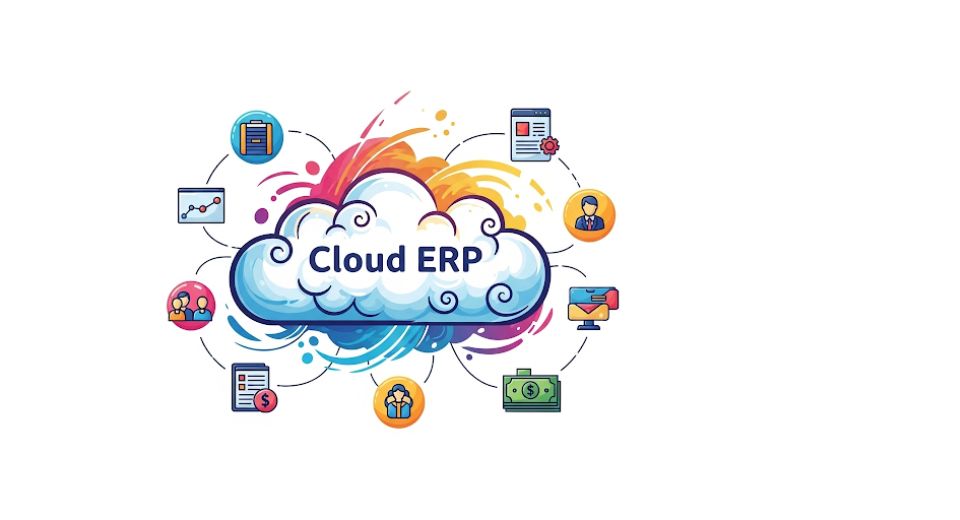
May 20, 2025

Metastat Insight latest edition warns the reader of the shifting scene of the Global Cloud ERP Market and underscores the manner in which businesses across various sectors are restructuring and remodeling their systems and operations as technology environments shift. What was considered a niche or specialized product from enterprise resource planning on the cloud has drifted inexorably into the mainstream. Companies, big and small, would like to centralize and automate functions such as finance, supply chain, inventory, human resources, and customer relationship management in a single platform. The shift towards a centralized system is not so much about making the business efficient but about creating infrastructure that is flexible, open, and conducive to good decision-making.
What is striking in the current architecture of the Global Cloud ERP Market is the simplicity with which services are being adopted and deployed across industries. It may be a multinational organization dealing with cross-border value chains or a mid-tier organization synchronizing procurement with production, and the need for flexible and adaptable systems has grown. Traditional ERP software, generally tied to local servers and hampered by excessive limitations on customization, has progressively yielded to cloud-based alternatives with more flexibility. Such change has not been abrupt but a steady development, provoked by the fact of the everyday working for firms in ever-more complicated markets.
With evolving operational paradigms for industries, the issue of cloud ERP has shifted from cost to more advanced topics such as data availability, compliance, and visibility in matters of performance. Centralization of data through cloud platform-based offerings gives businesses a bird's-eye view of business operations, enabling them to respond quickly to changes in the market. From procurement teams tracking lead times to HR teams maintaining employee records in real time, visibility enabled by cloud ERP systems is more and more shaping the way companies plan and operate. The possibility to develop insights in the moment without the constraint of the physical data infrastructure has transformed internal processes.
Security, once a source of worry, is now the topic of discussion for comfort in cloud ERP discussion today. Service providers continue to enhance their platforms with security protocols designed to protect sensitive corporate data, addressing the access requirement with stringent security controls. Encryption, multi-factor authentication, and access-based user bases have turned into building blocks, enabling businesses to depend on their operations on the cloud without compromising security. That emphasis on securing data increases the confidence businesses place on such solutions, a confidence that is further propelling adoption trends.
The productivity returns that result from cloud ERP go beyond business-wide efficiencies. With seamless integrations among departments, businesses are now well equipped to manage vendor relationships, customer interactions, and partner networks. The integrated platforms reduce duplication, simplify reporting, and provide more visibility into overall performance. This internal cohesion extends to improved external responsiveness. When a customer places an order, say, cloud ERP systems can automatically check inventory, automate production scheduling, and schedule shipping times, all in a synchronized fashion that minimizes lag time and maximizes customer satisfaction.
Modularity and customizability have also determined the trajectory of the Global Cloud ERP Market. Companies can now implement individual functionalities as per their immediate needs while allowing themselves room for growth. Selective adoption avoids loading companies with unwanted expense or complexity in the initial stage. It also encourages a measured shift away from legacy systems to make sure that organizations transition their processes in stages while maintaining continuity. Phased module roll-outs have allowed companies to maintain change under control, especially in environments where digital transformation must be undertaken concurrently with ongoing operations.
Cross-functional teamwork, long stymied by departmental silos, has been revitalized with cloud-based ERP platforms at their disposal. Teams of employees that previously operated in isolation now operate on shared systems, ensuring consistency in data application and decision-making. Finance, logistics, marketing, and IT departments can plan in concert without redundant duplication of data entry or communication breakdown. This common framework eliminates the resistance that typically accompanies interdepartmental operations and leads to faster delivery of strategic projects. With everyone operating from a common source of truth, the business's strategic congruence is improved.
The strength of live access to information cannot be overstated. Executives and managers across the globe today are turning to dashboards and reports showing live data, giving an actual picture of business well-being at any given moment. This real-time ability allows responses to be made before the curve, from changing sales strategies to resetting supply chain forecasts. Unlike traditional systems where data latency prevented timely decisions, cloud ERP systems have positioned organizations to act with higher levels of clarity and responsiveness. Decision-makers are no longer detached from the realities of operations but are closely interwoven with the pace of day-to-day activity.
The rigorous analysis brought forth by the Global Cloud ERP Market Report by Metastat Insight brings into focus the manner in which this strategy of technology has entered the organizational agendas of businesses in various industries. The consistent but irrefutable migration from conventional enterprise systems to cloud platforms has not only reshaped the software sector but also impacted how organizations quantify flexibility and efficiency. As pressures of modern business continue to stretch the capacities of ancient infrastructure, the flexibility, clarity, and collaborative benefits of cloud ERP systems are taking center stage. This dynamic shift continues to redefine the narrative of enterprise management in meaningful ways, reaffirming the relevance of the Global Cloud ERP Market in the broader context of operational resilience and strategic growth.
Drop us an email at:
Call us on:
+1 214 613 5758
+91 73850 57479